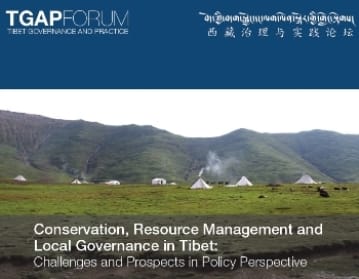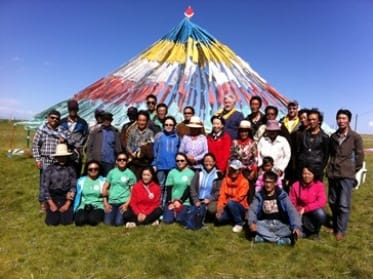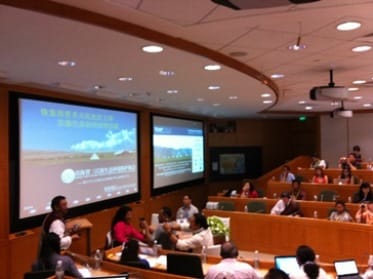IGE Co-Convenes Chinese, Tibetans, and International Scholars for Conference on Tibet Governance
Arlington, VA — From 6-12 August, the Institute for Global Engagement (IGE) co-convened the Tibet Governance and Practice (TGAP) Forum, a unique space where Chinese officials, Tibetan leaders (both overseas and grassroots), and international scholars engaged in frank and open discussion on “Conservation, Resource Management, and Local Governance in Tibet.” TGAP was hosted by the Institute for Ethnic Minority Groups (IEMG), a Chinese State Council Development Research Center think tank, and co-convened by IGE, Machik, the Oslo Coalition on Freedom of Religion or Belief, Harvard University, and George Washington University’s Institute for Global and International Studies. This was the first conference ever held in China which featured such a diversity of voices on the topic of Tibet. Besides several notable Tibetan grassroots workers, participants also included officials from the Central Party School and State Ethnic Affairs Commission as well as professors from Peking University and Fudan University.

The forum started out with a two-day site visit of Xining, the provincial capital of Qinghai, and grassland areas around the Qinghai Lake inhabited by Tibetan nomads and herders. A core group of participants observed innovative grassroots efforts to reverse desertification, form cooperatives, and manage eco-tourism businesses. This site visit brought to light some of the contemporary environmental and economic challenges faced by Tibetan nomads as well as their determination and ingenuity in tackling them.

TGAP Forum Participants Engage in On-the-Ground Survey of Tibetan Nomad Communities in Qinghai
After observing the situation of Tibetans in Qinghai first-hand, participants then traveled to Shanghai for a three-day academic conference held at the Harvard Center. Issues and challenges related to conservation, urbanization, and resettlement were discussed, with participants being able to hear unfiltered views from local party officials, residents, and community workers. The conference concluded with a policy workshop in which several recommendations were proposed for addressing issues that were brought up during the conference.

Tibetan Environmental Activist Hashi Tashi Dorje Makes a Presentation at the TGAP Forum
About the Institute for Global Engagement – The Institute for Global Engagement works at the critical intersection of religion and global affairs, building sustainable environments for religious freedom worldwide. Through local partnerships, IGE works transparently to convene, connect, and build consensus among government, religious leaders and scholars to ensure that people of all faiths and none have full freedom of conscience and can participate as equal citizens in public life. To learn more about IGE, the TGAP forum, or any of our other overseas engagement, please contact James Chen, Vice President for Overseas Programs at jchen@globalengage.org.